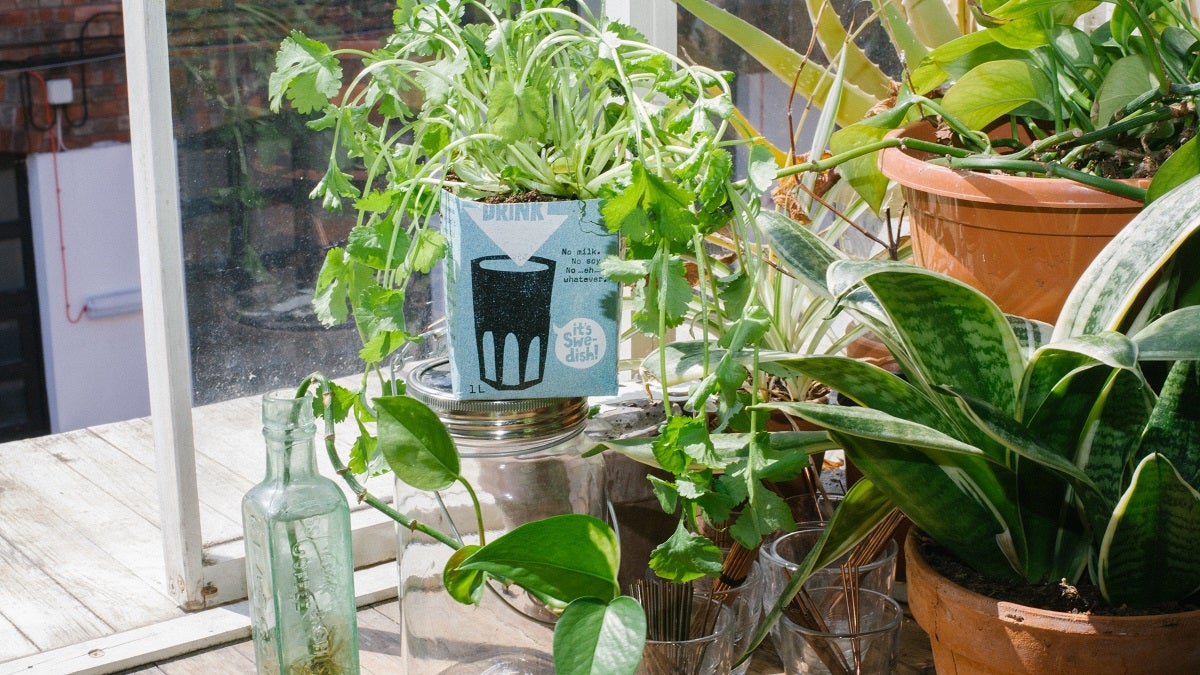
Oatly, Innocent, Alpro and Pepsi Lipton have all had their knuckles rapped by the Advertising Standards Authority (ASA) in the past year for sustainability claims in their promotional campaigns.
Complaints ranged from the company declaring that its product has fewer carbon emissions than the dairy equivalent (Oatly), to making broad statements about it being better for the planet (Innocent and Alpro), to not specifying which parts of its packaging were 100% recycled (Pepsi Lipton).
Consumers took issue with all four brands for the validity and clarity of the information in their advertisements – which were shared collectively via press, social media, TV and on billboards – and brought their concerns to the watchdog. The complaints were upheld, with the consistent ruling that the companies were just not specific enough about their claims.
With many companies interweaving sustainability-related messaging and values into their brand identities, similar issues could arise in future. So, what can businesses do to ensure they don’t fall foul of “greenwashing” advertising rules?
Consumer complaints on the rise
The ASA’s guidance on environmental and sustainability claims isn’t new, insists Miles Lockwood, the body’s director of complaints and investigations. But with consumer complaints around these types of adverts rising exponentially – climbing from 143 in 2018 to 805 in 2021, according to ASA data – Lockwood acknowledges that he and his team are upping the ante in terms of scrutiny and investigative resources.
“The ASA has had environmental rules in our code for decades, and we’ve been ruling against misleading and socially irresponsible claims for many, many years,” Lockwood says.
“What has changed is that, early last year, we recognised that we needed to go further and go faster in our regulation of this because of the climate crisis and the environmental concerns that everybody rightly has about it. So, we have decided to apply a lot more resources to this issue and shine a brighter light on it.”
We cannot let companies off the hook just because they are trying to promote something which they say is best for the environment – to do so would be to open floodgates to unrestrained greenwashing
Brands must think about the accuracy of the science in any messages they put forward and ensure they have evidence to support their claims, all the way across their supply chains, Lockwood says. When brands get it wrong, it’s because they haven’t recognised that this is one of the most complicated parts of advertising.
“We are not trying to be an enemy of the good here,” he says. “But these recent rulings do disclose something important, which is that even if you are trying to do good, you still need to be accurate.”
Businesses should be careful not to mislead by omission “because we cannot let companies off the hook just because they are trying to promote something which they say is best for the environment”, he says. “To do so would be to open floodgates to unrestrained greenwashing.”
While all outwardly condemn greenwashing, the reaction from the brands involved has ranged from remorse to defiance. Oatly spokesperson Tim Knight admits: “It’s clear that we could have been more precise in the way we described some of the scientific data for parts of this campaign.”
On the promotion concerned, he says: “Our core message was true but we weren’t specific enough when referring to scientific data.”
For example, the company made a claim that Oatly generates 73% fewer carbon-dioxide emissions than cows’ milk: the ASA found that the statement implied this was the case for all Oatly products, when, actually, it applied to just one. “We should have been more specific and said, ‘Oatly Barista Edition oat drink generates 73% less CO2 emissions vs whole milk, calculated from grower to grocer’,” says Knight.
The difference between what was included and what should have been included – down to which products were mentioned and in what context – demonstrates the necessary evidence and accuracy that Lockwood and the ASA require.
By contrast, Innocent isn’t afraid to say that it was disappointed in the ruling, as its advertisement was “intended to highlight important global environmental issues and the need for collective action to make a change”. That’s the argument from Emilie Stephenson, the brand’s UK head of Force for Good, which is how Innocent refers to its environmental, social and governance efforts.
Calls for a clearer framework
Stephenson makes the point that the science keeps evolving, so a clearer business framework is required that brands can more easily adhere to.
It was only in October 2021, for example, that the Science Based Targets initiative announced the world’s first standard for corporate net-zero emissions, she says. “Until then, companies were self-defining their net-zero targets, so clarity and frameworks are urgently needed from governments and regulators.”
This is also, more broadly, why Innocent is calling on the government to get behind the Better Business Act, she says, “to help provide a framework for businesses to operate responsibly”.
Brands should be leaning on expert advice to ensure they land on the right side of the guidelines, Lockwood says, whether it’s support from a scientist or a sustainability consultancy.
Pura, a biodegradable baby wipes brand, relies on the knowledge of its in-house sustainability director, says chief marketing officer Amanda Richards.
In light of the recent rulings, Pura has reviewed its own messages around being 100% plastic-free and 100% biodegradable, and Richards is confident that they’ll stand up to questioning – something brands without a track record of being sustainable may find harder to assert, she says.
“Those that have a history of making evidence-based claims should have little to fear or change,” Richards says. “For brands that have hidden behind fuzzy statements and empty promises when it comes to the environment, there will be a lot of work – and potentially cost – associated with the adherence to the guidelines.”
‘Born good’ vs ‘trying to become good’
If the guidelines seem too complex to follow, it’s likely that the business just isn’t there yet sustainability-wise, argues Georgina Murray-Burton, head of brand communications strategy at Engine Creative, the agency behind Sky Zero campaigns, such as The Day the Moon Came to Earth, told from the perspective of astronauts in space.
“Some brands are ‘born good’ – a sustainable business to the core that can help inform and educate people with their offering. Others are trying to ‘become good’. It’s with these clients that we’ve already had to have conversations about why they want to include sustainability messages, and if they can and should,” Murray-Burton observes.
Businesses are used to tapping into trends and culture to generate affiliation and, ultimately, sales, she says. “But this isn’t a trend – the future of our planet, our home and humanity is at stake. Our industry has so much power to shape opinions and influence decisions, and this will help us avoid accidental greenwashing.”
Marketing departments, she adds, will have to work more closely with the operational side of their businesses to better understand their supply chains and practices before deciding on any claim about the environment they could make.
Sectors under scrutiny
True to Lockwood’s word, the ASA will be casting its net even wider into the world of sustainability marketing. It is currently researching the carbon-neutral and net-zero claims from the electric vehicle sector, as well as looking into broader messages around carbon reduction across energy, heating, transport and use of plastics, which it will kick off in spring. That will be followed by a review of meat and dairy sustainability claims and those of plant-based products.
“There’s a big difference between pure puffery tokenism and claims which actually have a meaning, which have an economic impact on the behaviour of the consumer,” says Lockwood. “That’s what we’re concerned about here.”

Oatly, Innocent, Alpro and Pepsi Lipton have all had their knuckles rapped by the Advertising Standards Authority (ASA) in the past year for sustainability claims in their promotional campaigns.
Complaints ranged from the company declaring that its product has fewer carbon emissions than the dairy equivalent (Oatly), to making broad statements about it being better for the planet (Innocent and Alpro), to not specifying which parts of its packaging were 100% recycled (Pepsi Lipton).
Consumers took issue with all four brands for the validity and clarity of the information in their advertisements – which were shared collectively via press, social media, TV and on billboards – and brought their concerns to the watchdog. The complaints were upheld, with the consistent ruling that the companies were just not specific enough about their claims.





